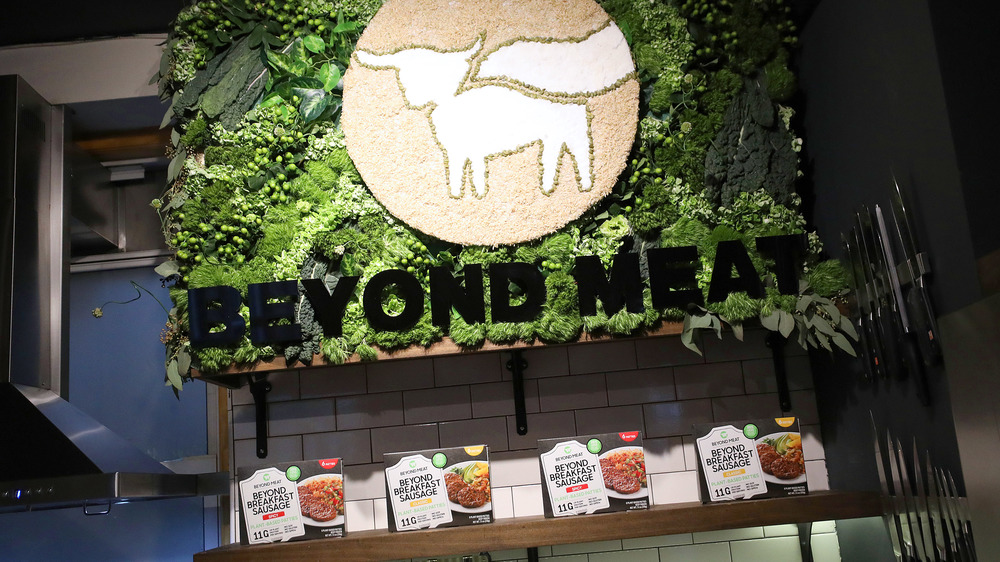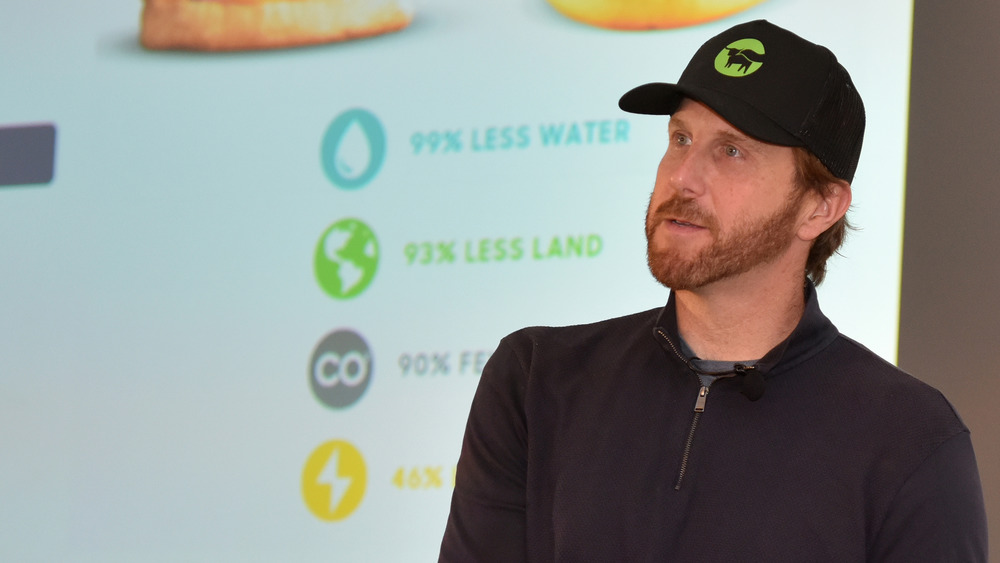The Untold Truth Of Beyond Meat
We live in a world with increasingly alternative food options: gluten-free, dairy-free, vegan, and other kinds of meals for those who have embraced food beyond the conventional choices. Beyond Meat is a startup with a mission to provide those looking for meat-free options with something that suits their preferences. According to the Los Angeles Times, Beyond Meat is the brainchild of entrepreneur Ethan Brown, a vegan who is passionate about sharing his vision with the rest of the world.
As per a description on Beyond Meat's official website, the company wants to help others embrace positive choices, such as eating plant-based meat substitutes. "We believe there is a better way to feed our future and that the positive choices we all make, no matter how small, can have a great impact on our personal health and the health of our planet," the description reads. It adds that the perks associated with plant-based meat are many and can help the world tackle several issues such as climate change, animal welfare, human health, and more.
According to the Associated Press, Brown worked with two professors from the University of Missouri, Fu-hung Hsieh and Harold Huff, to make his dream a reality. The professors have been working on creating soy-based chicken since the 1980s. Their partnership resulted in plant-based meat offerings that aren't genetically modified, created with ingredients like canola oil, pea protein, potato starch, and other plant-based options.
The company's vision is a little different
For Brown, as the Los Angeles Times relates, it's important to not be preachy or aggressive. He is basically a "flexitarian" who doesn't wish to come off too strong. For him, being a part of the narrative doesn't mean "scolding" his customers. He was himself a meat eater in the past, and understands varied perspectives."I loved things like fried chicken, loved things like burgers. And then someone comes into the scene and starts telling you it's bad for your health, bad for the environment, bad for the animals," Brown said, adding that he understands that every person is on an individual journey.
Clearly, Brown got something right. His approach paid off and Beyond Meat enjoyed considerable success after its inception in 2009, teaming up with major brands like Carl's Jr., Dunkin', TGI Fridays, Walmart, Sprouts Farmer Market, Target, Publix, and more. Last week, Pizza Hut joined forces with Beyond Meat in a bid to offer alternative, plant-based meat pizza to its customers, such as the "Beyond Italian Sausage" pizza that is basically a cheese pizza with Beyond sausage crumble, and a veggie pizza with the sausage crumble called the "Great Beyond" pizza (via CNN.)
The company has tough competition
As ambitious as Brown's vision is, Beyond Meat has stiff competition in the plant-based meat market. According to Forbes, the future looks tricky for the company as its competitors continue to grow. Some of the big names in the reckoning are Impossible Foods, Maple Leap Foods' Lightlife Foods, Gardein from ConAgra Foods, Incogmeato by Morningstar Farms (a subsidiary of Kellogg Co.), Simple Truth plant-based meat from The Kroger Co., and more. Some of these are major brands that control factors such as shelf space, making it difficult for Beyond Meat's products to stand out when it comes to names like Kroger.
The company has witnessed a drop in shares, but Brown is optimistic. Last month, he told CNBC that Beyond Meat is going to concentrate on disrupting the market instead of fretting over collaborations. "People have asked me, 'Do you want to do a partnership with a larger company?' I have no interest in that. I want to be that larger company," Brown said.
What does the public think of Beyond Meat's products? Reviews are mixed, but demand for plant-based products is definitely on the rise. A Redditor reflected on their experience of Beyond Meat burgers and wrote, "They are really right on as far as texture and taste [are concerned] — coming from a person who's been vegetarian for more than a dozen years." They added that on the flip side, the products tend to be expensive and are also very oily.


